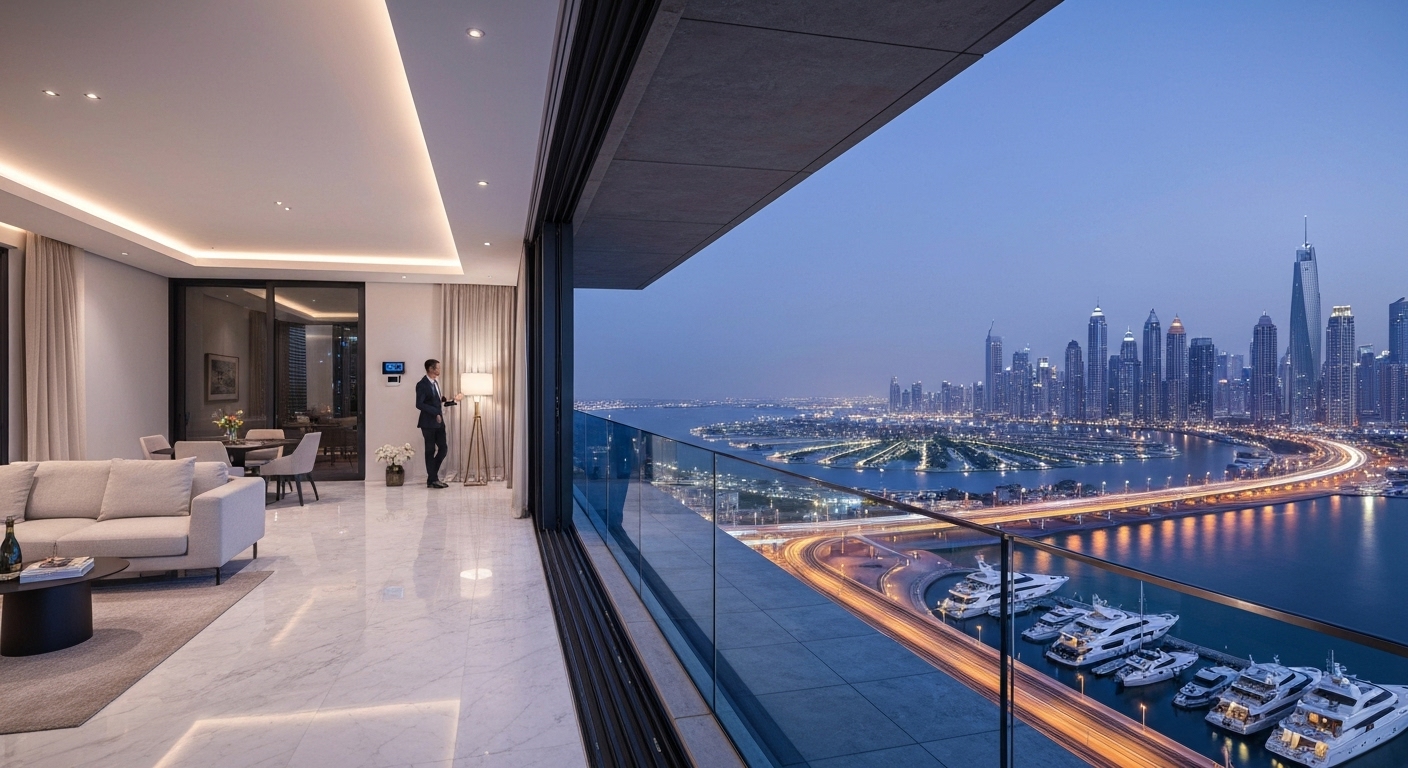The 2025 Investment Landscape: Dubai vs. London for HNIs
As we enter 2025, high-net-worth individuals face a pivotal decision in their property investment strategies. Dubai and London continue to dominate global real estate discussions, each offering distinct advantages for sophisticated investors. Dubai’s meteoric rise as a luxury destination has positioned it as a formidable competitor to London’s established market dominance. The UAE’s strategic positioning as a global business hub, combined with progressive policies and world-class infrastructure, creates compelling opportunities for discerning investors seeking diversification and growth.
The UAE’s golden visa program offers long-term residency for property investors, providing additional lifestyle and business benefits.
Key Financial Metrics: ROI, Rental Yields, and Capital Appreciation Potential
Dubai consistently delivers superior rental yields compared to London, with prime properties achieving 6-8% annual returns versus London’s 2-4%. The emirate’s robust tourism sector and growing expatriate population drive sustained rental demand, particularly in luxury segments. Capital appreciation in Dubai has demonstrated remarkable resilience, with select developments showing 15-20% annual growth over recent cycles.
London’s mature market offers stability but increasingly modest returns. Prime central London properties typically yield 2-3% annually, while capital appreciation has slowed due to regulatory pressures and market saturation. However, London’s currency stability and established legal framework continue to attract conservative investors prioritizing wealth preservation over aggressive growth.
The cost of entry varies significantly. Dubai offers luxury properties starting from $500,000, while comparable London assets often exceed $2 million. This accessibility allows HNIs to diversify across multiple Dubai properties, potentially enhancing overall portfolio returns through risk distribution.
Tax Advantages and Regulatory Environment: A Critical HNI Consideration
Dubai’s tax-free environment presents an unparalleled advantage for HNI investors. Zero capital gains tax, no rental income tax, and no inheritance tax create a highly attractive proposition for wealth preservation and transfer. The UAE’s golden visa program offers long-term residency for property investors, providing additional lifestyle and business benefits.
London’s tax landscape is increasingly challenging for HNIs. Stamp duty rates reach 17% for overseas buyers, while annual property taxes and potential capital gains liabilities significantly impact net returns. Recent non-dom tax changes have prompted many wealthy individuals to reconsider their UK property holdings.
Market Stability, Growth Potential, and Long-Term Outlook
Dubai’s diversified economy, anchored by tourism, trade, and technology, provides robust market fundamentals. The city’s preparation for Expo legacy projects and continued infrastructure investment signals sustained growth potential. Government initiatives supporting foreign investment and business establishment further enhance market confidence.
London benefits from deep liquidity and institutional stability but faces headwinds from economic uncertainty and regulatory changes. Brexit implications continue to influence market sentiment, while political instability affects investor confidence. However, London’s status as a global financial center ensures continued, albeit measured, demand.
Luxury Property Segments and Lifestyle Appeal: What Each City Offers
Dubai’s luxury market encompasses world-class developments featuring cutting-edge architecture, premium amenities, and innovative smart home technologies. Projects in Dubai Marina, Downtown Dubai, and Palm Jumeirah offer unparalleled lifestyle experiences with year-round sunshine, world-class dining, and recreational facilities.
London’s luxury segment emphasizes heritage, exclusivity, and cultural prestige. Prime locations like Mayfair, Knightsbridge, and Belgravia offer timeless appeal and proximity to world-renowned institutions. The city’s rich history and cultural offerings attract investors seeking lifestyle enhancement alongside financial returns.
Navigating Investment Challenges and Opportunities in Both Markets
Dubai presents opportunities in emerging districts and off-plan developments, offering early-bird pricing and customization options. However, investors must carefully evaluate developer credibility and project timelines. Market volatility can create short-term fluctuations, requiring patient capital and strategic timing.
London offers established neighborhoods with proven track records but limited growth potential. Regulatory complexity and high transaction costs can erode returns, while supply constraints in prime areas maintain price pressure. Currency fluctuations add another layer of consideration for international investors.
Making the Informed Choice: A Strategic Framework for HNI Investors
The optimal choice depends on individual investment objectives, risk tolerance, and lifestyle preferences. Dubai suits growth-oriented investors seeking tax efficiency and emerging market opportunities. The city’s dynamic environment and business-friendly policies create compelling long-term prospects.
London appeals to investors prioritizing stability, liquidity, and cultural heritage. Despite tax challenges, the city’s established market infrastructure and global connectivity maintain its appeal for wealth preservation strategies.
For sophisticated HNI portfolios, a balanced approach incorporating both markets may optimize risk-adjusted returns while providing geographic and currency diversification. Professional wealth management guidance remains essential for navigating the complexities of international property investment in both these dynamic markets.




